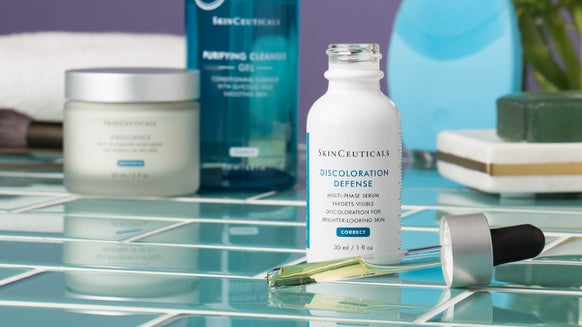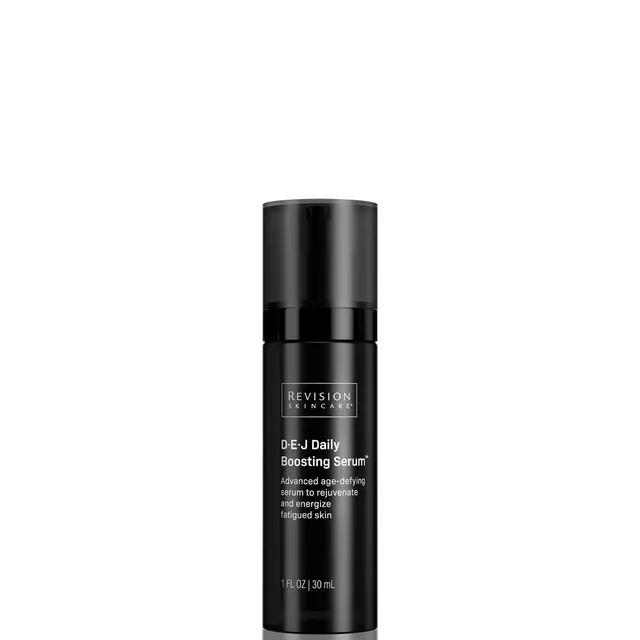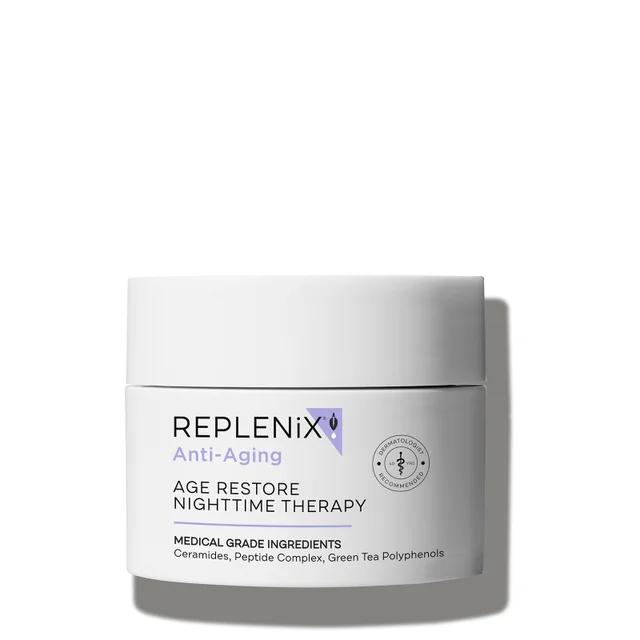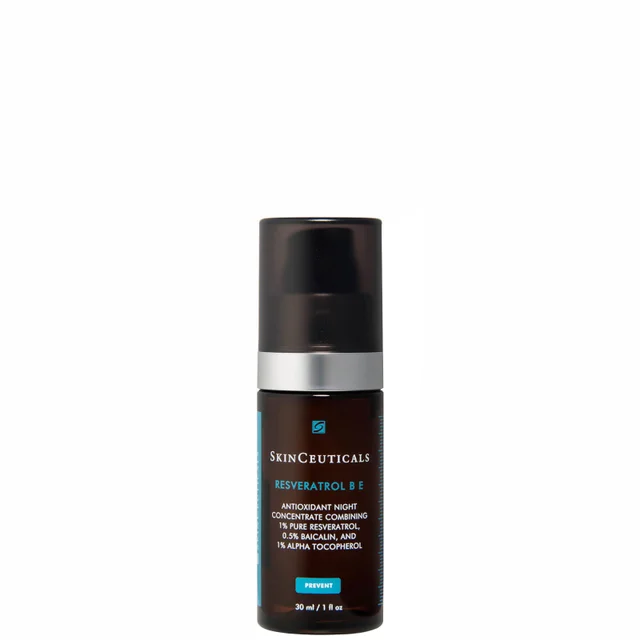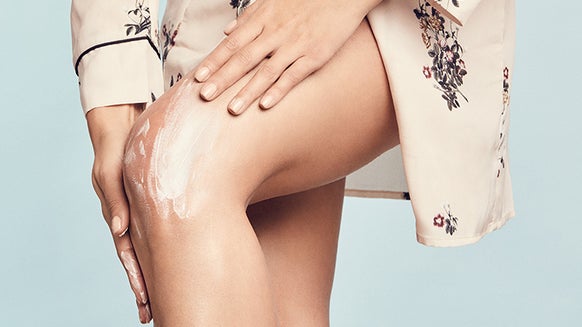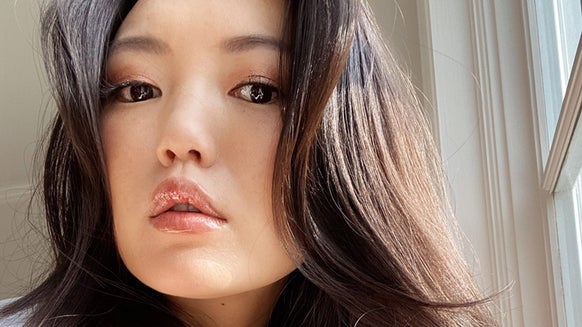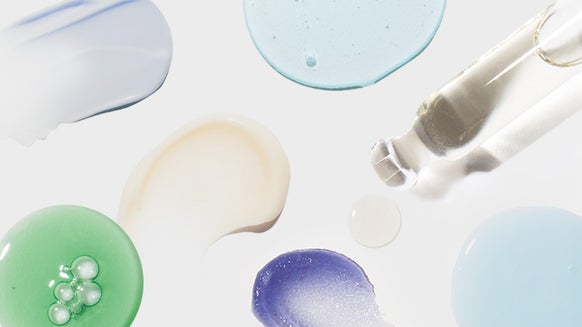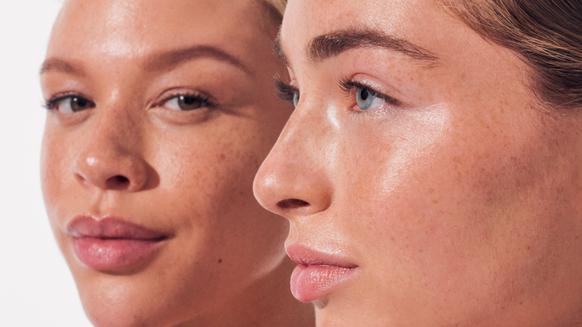What is Resveratrol? All You Need to Know About This Antioxidant Powerhouse, Explained by a Dermatologist
If you think kicking back with a glass of red wine sounds like the perfect way to cap off a long week, then here’s another reason to make you look forward to your weekend plans: resveratrol, the powerhouse antioxidant naturally found in grapes, red wine, and berries, has been quietly changing the skincare game with its transformative properties. From fighting signs of aging to protecting against environmental damage, resveratrol just might be the missing piece in your skincare routine. But what is resveratrol exactly, and how do you incorporate it into your regimen (without having to deal with a hangover)? Ahead, a deep dive into resveratrol and its long list of benefits for your skin, straight from the expert.
Meet the Expert
Dr. Ashley Magovern - Board-certified Dermatologist and member of Dermstore's Medical Advisory Board
In this Article
- What is Resveratrol?
- What Does Resveratrol Do for You Skin?
- Is Resveratrol Safe for All Skincare Types?
- Benefits of Resveratrol for Skin
- Ingredients to Pair with Resveratrol
- How to Use Resveratrol in Your Skincare Routine
- Can Resveratrol Help Treat Acne?
- Potential Side Effects
- FAQs
- The Bottom Line
What is Resveratrol?
A type of polyphenol, resveratrol is produced by certain plants—like berries, nuts, and cacao beans, with its most abundant source being the skin and seed of red grapes—as a natural antibiotic and protector against environmental damage, fungi, and ultraviolet radiation. When it comes to your skin, resveratrol works in a similar way, fighting off pesky free radicals and environmental triggers that lead to damage and premature skin aging.
“It’s a powerful antioxidant known for its ability to neutralize free radicals and protect the skin from oxidative stress,” explains board-certified dermatologist Dr. Ashley Magovern, Dermstore’s medical director. In fact, it’s often referred to as a ‘longevity molecule’ because of its anti-aging properties and ability to heal and repair the skin at a cellular level, she adds.
What Does Resveratrol Do for Your Skin?
With its potent antioxidant properties, resveratrol nips the harmful effects of free radicals in the bud and stems damage at a cellular level, acting like your skin’s very own repair and defense crew. “Resveratrol works as a skin protector and healer. It combats oxidative stress, reduces inflammation, and repairs damage caused by environmental factors,” explains Dr. Magovern. “Over time, it enhances skin texture, tone, and overall resilience, contributing to a youthful, radiant complexion.”
Resveratrol Benefits for the Skin
When it comes to using resveratrol for skin health, you can bet it’s no one-hit wonder. Aside from supporting the body’s immune response and promoting healthy cardiovascular and cognitive functions, Dr. Magovern says resveratrol also brings the following skin benefits to the table:
Antioxidant Protection: External aggressors cause the formation of pesky free radicals, which then lead to oxidative stress and a host of skin concerns, including signs of aging. According to Dr. Magovern, resveratrol “shields the skin from environmental stressors, like pollution and UV rays, reducing damage and preventing premature aging.” Anti-Aging: “Resveratrol promotes skin elasticity and reduces the appearance of fine lines and wrinkles by boosting collagen production and improving cell turnover,” explains Dr. Magovern. Brightening: Resveratrol possesses brightening properties that help “even out skin tone and reduce hyperpigmentation, leaving your skin glowing and more radiant,” Dr. Magovern adds. Anti-Inflammatory: Sensitive or acne-prone skin can benefit from resveratrol’s calming effect against redness and irritation, says Dr. Magovern. Improved Skin Barrier: Resveratrol strengthens the skin’s natural defenses against environmental aggressors and improves its ability to retain moisture, Dr. Magovern adds.
Ingredients to Pair with Resveratrol
Resveratrol is the type of ingredient that not only plays well with other staple actives but also enhances their benefits, making it that much easier to curate your own skincare dream team. Wondering if your current faves would work well with resveratrol? Dr. Magovern says these ingredients make for the best teammates for resveratrol:
Vitamin C: Together, vitamin C and resveratrol beef up each other’s antioxidant and protective properties Hyaluronic Acid: Hyaluronic acid floods the skin with much-needed hydration while resveratrol helps lock in all that moisture. Niacinamide: Both niacinamide and resveratrol help with smoothing uneven skin tone, calming and soothing inflammation, and brightening. Peptides: Peptides promote collagen synthesis, supporting resveratrol’s anti-aging benefits, like enhancing elasticity and firmness. Retinol: An anti-aging rockstar, retinol is all about cell renewal and regeneration, complementing resveratrol’s reparative and anti-aging properties.
As for ingredients to avoid, Dr. Magovern notes that as long as you don’t apply too many active ingredients at the same time, you don’t have much to worry about. “There are no major conflicts with resveratrol, but avoid overloading your routine with too many actives, which can overwhelm your skin,” she explains. “If your skin is getting irritated, it’s telling you to back off.”
How to Use Resveratrol in Your Skincare Routine
Adding resveratrol to your skincare routine is a breeze because it’s versatile and a true multitasker. Commonly found in serums and creams, Dr. Magovern suggests using the ingredient in both your daytime and nighttime routines.
For your morning regimen, Dr. Magovern recommends applying a resveratrol-based serum or moisturizer after cleansing and topping off with your go-to SPF. In the evening, resveratrol comes before heavier creams or treatments but can be layered before or after retinol, depending on the serum’s consistency.
Is Resveratrol Better Than Retinol?
Resveratrol and retinol both have anti-aging credentials, but they target fine lines and wrinkles in different ways. Retinol hastens cell turnover and collagen production to keep the skin looking young, firm, smooth, and acne-free. Meanwhile, resveratrol for skin health focuses on amping up the skin’s antioxidant properties to defend against free radical damage, inflammation, and external aggressors, thereby keeping signs of aging at bay.
What’s great about these ingredients is that you can absolutely get the best of both worlds, says Dr. Magovern. “They’re not direct substitutes but can complement each other beautifully when used correctly. Resveratrol’s calming properties can mitigate retinol’s potential irritation,” she adds.
Potential Side Effects
Because resveratrol is well-tolerated by all skin types and pairs well with plenty of other active ingredients, it’s uncommon to encounter side effects. However, not all skin can have the same tolerance for every ingredient, so Dr. Magovern warns that those with highly reactive skin may experience mild redness or irritation.
Shop the Best Resveratrol Skin Care
1. Dr. Dennis Gross Alpha Beta Universal Daily Peel
Featuring a combination of AHAs, BHAs, and antioxidants like resveratrol, this at-home peel buffs, smooths, and brightens the complexion to enhance the skin’s natural glow.
Key Ingredients: AHAs, BHAs, Resveratrol, Retinol, Ascorbic Acid
Skin Type: Normal, Combination
Skin Benefits: Improves texture, refines pores and acne scars, enhances radiance, reduces fine lines and wrinkles
Beauty Insider Tip: For maximum skin rejuvenation, apply both step one and step two pads daily (morning or night).
2. Revision Skincare D E J Daily Boosting Serum
Thanks to its patented technology and powerful blend of antioxidants, hydrators, and postbiotics, this skin-transforming serum hydrates and strengthens the skin while boosting cellular energy, making sure it’s well-defended against everyday stressors while combating visible signs of aging.
Key Ingredients: Sunflower Sprout Technology, Vitamin C, Resveratrol, Postbiotic Blend, Hyaluronic Acid
Skin Type: All skin types
Skin Benefits: Boosts hydration, reinforces barrier function, firms skin, improves luminosity
Beauty Insider Tip: Use morning and night for all-day refreshed, younger-looking skin.
3. Replenix Age Restore Nighttime Therapy
Packed with skin-loving polyphenols, peptides, ceramides, and humectants, this rich cream works overtime to repair, rejuvenate, and restore your skin while you sleep so you’ll always wake up with that youthful, lit-from-within glow.
Key Ingredients: Ceramides, Apple and Peptide-Derived Stem Cells, Resveratrol, Green Tea, Caffeine, Hyaluronic Acid
Skin Type:
Skin Benefits: Supports skin barrier, diminishes fine lines and wrinkles, hydrates, protects against environmental damage
Beauty Insider Tip: Ideal for your evening routine, apply to your face, neck, and decollete after cleansing, toning, and serums.
4. SkinCeuticals Resveratrol B E
Another holy grail from well-loved brand SkinCeuticals, this nighttime serum boasts of pure, stable resveratrol, baicalin, and pure vitamin E to arm your skin with the most intense antioxidant protection while supporting skin renewal as you sleep.
Key Ingredients: 1% Resveratrol, 0.5% Baicalin, 1% Alpha Tocopherol
Skin Type: All skin types
Skin Benefits: Diminishes signs of aging, imparts visible radiance, counters oxidative stress, improves elasticity
Beauty Insider Tip: This clinically formulated serum rebuilds firmness and density by 18.9 percent.
5. PCA Skin Intensive Brightening Treatment
For skin that needs rescuing from stubborn dark spots, uneven tone, and blemishes caused by skin damage, this nighttime treatment is for you. Taking advantage of the skin’s natural repair cycle, it harnesses the power of retinol and antioxidants to renew your skin overnight and reveal a clearer, more youthful complexion. As they say, not all heroes wear capes.
Key Ingredients: Retinol, Resveratrol, Niacinamide, Hexylresorcinol
Skin Type: Normal, Combination, Dry
Skin Benefits: Smooths, softens, and brightens skin; reduces inflammation; evens skin tone
Beauty Insider Tip: Formulated for evening use only, start by using twice per week and slowly increase the frequency as your skin builds tolerance.
6. iS Clinical Copper Firming Mist
This facial mist is like a refreshing jolt of moisture that instantly hydrates and revives the skin and boosts its defenses against pollutants while rebalancing, plumping, and reviving a tired-looking complexion.
Key Ingredients: Copper PCA, Antioxidants
Skin Type: Dry, Combination, Mature, Normal
Skin Benefits: Shields skin from pollutants, immediate hydration
Beauty Insider Tip: Don’t leave home without this refreshing mist to give your skin a refreshing pick-me-up while on the go.
FAQs
Is Resveratrol Safe for All Skin Types?
As a skincare ingredient, resveratrol for skin health is celebrated not just for its anti-aging and protective properties, but also for being a total crowd pleaser. “Resveratrol is generally safe and well tolerated by all skin types. Its soothing properties make it especially beneficial for sensitive or inflamed skin,” says Dr. Magovern.
Is Resveratrol Better than Retinol?
Lorem ipsum dolor sit amet, consectetur adipiscing elit, sed do eiusmod tempor incididunt ut labore et dolore magna aliqua. Ut enim ad minim veniam, quis nostrud exercitation ullamco laboris nisi ut aliquip ex ea commodo consequat. Duis aute irure dolor in reprehenderit in voluptate velit esse cillum dolore eu fugiat nulla pariat
Which is Better, Vitamin C or Resveratrol for Skin?
When it comes to vitamin C and resveratrol, there’s really no need to pit one against the other, says Dr. Magovern. “One is not necessarily better, and they can be used together to maximize benefits to protect and rejuvenate the skin,” she explains. That said, depending on your skin goals, one ingredient may be more effective in targeting specific concerns. Both are powerhouse antioxidants, but vitamin C is more of a must-have for diminishing hyperpigmentation, boosting collagen production, and brightening the skin. And while resveratrol does have brightening properties, its primary tasks are providing long-lasting antioxidant effects, calming inflammation, protection against environmental stressors, and repair.
Is Resveratrol Good to Use Daily?
Despite being a super potent antioxidant, resveratrol is still gentle enough to be used daily regardless of your skin type. In fact, it works best when applied consistently in your morning or evening routine. But if you’re thinking of only using it once a day, save it for your PM routine to sync its healing and restorative properties with your body’s natural repair cycle.
The Bottom Line
When it comes to hardworking skincare ingredients, resveratrol is a star because of its versatility and wide range of anti-aging and protective benefits. So, what is resveratrol, you ask? It’s a game-changing antioxidant that heals, repairs, and protects your skin at a cellular level while amping up your skin’s defenses against free radicals, oxidative stress, and environmental damage. Safe and well-tolerated by all skin types, it can be added seamlessly to your skincare routine because of how perfectly it complements other must-have active ingredients that improve hydration, prevent acne and inflammation, brighten hyperpigmentation, and slow down signs of aging. Think as an antioxidant blend with vitamin C, a serum with retinol, or as a moisturizer with other soothing and barrier-boosting ingredients like niacinamide and ceramides. Ready to transform your skin with the help of this game-changing antioxidant? Click here to discover more resveratrol-infused skincare products and watch your skin glow like never before.

Janeca Racho is a Journalism graduate with over 15 years of writing experience. After getting her start in public relations and advertising, she made the switch to freelance writing and began working for various lifestyle, fashion, and travel brands. Her love for all things skincare has led her to beauty reporting and research for the last ten years. Writing for several hair and beauty blogs, she reports on anti-aging staples, trending brands and products, must-have ingredients, and health and wellness.
Related Posts
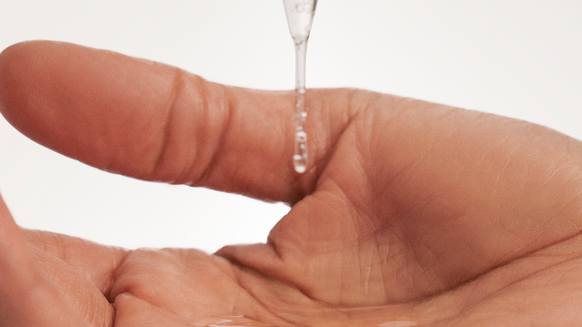
Should You Pair Niacinamide and Hyaluronic Acid Together? A Derm Explains All
